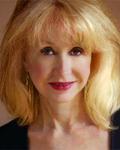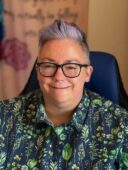
Anxiety therapists in Big Park, Arizona AZ

Dr. Florence Rosiello
Therapist, Ph.D.
Most of my work is with people who have difficulty in relationships, either feeling too emotionally isolated or too merged. My strength lies in helping people find a place where they can be in intimate relationships and not lose themselves. Loving is difficult - and feeling loved, is even harder.
Psychotherapy.Com
Psychologist, Ph.D.
Cognitive Behavioral Therapy for anxiety, fears or phobia
Dr. Paige Hover
Psychologist, PsyD
Anxiety can really be disruptive, making it hard to sleep, hard to eat, hard to focus, etc. Sometimes the worry can get out of hand and make you avoid things or impact your relationships with others and feel all consuming. Anxiety is tricky too because it can sometimes feel helpful, especially for a perfectionist who did well in school or is recognized for their dedication at work. Together we can better understand what you are anxious about. I can teach you how to deal with anxiety based on a deeper understanding of yourself for more successful long term mental health management.
Jamie Pettus
Psychologist, PsyD
Many struggle with anxiety on a daily basis, and can be helped by working on it in therapy.
Jayson L. Mystkowski
Psychologist, Ph.D., ABPP
While Cognitive-Behavior Therapy (CBT) is highly effective in the treatment of anxiety disorders (e.g., Panic Disorder, Social Phobia, and Obsessive-Compulsive Disorder), clinicians do see some “return of fear,” or partial relapse, in some patients due to a variety of factors. Over the past two decades, treatment researchers, with whom Dr. Jayson Mystkowski had the pleasure of working with at UCLA for over 10 years, have studied “return of fear” and discovered some key variables that may optimize the effects of learning during CBT for anxiety disorders (Craske et al., 2008).
First, evidence suggests that focusing on tolerating fear versus eliminating fear yields better clinical outcomes in the long term. Namely, teaching clients that fear and anxiety are normal feelings, rather than attempting to “down-regulate” such feelings all the time, is more realistic and seems to engender “hardier” clients. Second, helping clients to generate an expectancy that “scary things will not happen,” is very powerful. To do this, it is important for clinicians to create more complex exposure exercises (i.e., tasks in which a client confronts a stimulus of which they are afraid), using multiple feared stimuli instead of one at a time. Then, the lack of a feared outcome becomes particularly surprising and memorable for a client and fear reduction is more potent. Third, increasing the accessibility and retrievability of non-fear memories learned during treatment are powerful factors in mitigating against a return of fear. Craske and colleagues demonstrated that exposure to variations of a feared stimulus, using a random schedule across multiple contexts or situations, is more effective than exposure to the same stimulus, on a predictable schedule, in an unchanging environment. The former paradigm, it is argued, creates stronger non-fear memories that are easier for a client to access when subsequently confronting feared objects or situations outside of the therapy context, than the later scenario.
In sum, clinicians have long been aware that some fear or anxiety returns following very successful CBT treatment. As mentioned above, there are some clear, empirically supported ways to modify the therapy we provide to further help clients generalize the gains made in therapy sessions to the real world.





